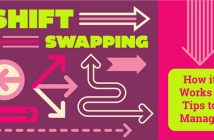Source: https://unsplash.com/photos/aerial-photography-of-concrete-roads-7nrsVjvALnA
For many people, driving is an integral aspect of daily life. It does, however, have some guidelines. There may be severe consequences if these guidelines are not followed. The scope of traffic offenses is broad. They range from minor transgressions to severe crimes. Every violation has different consequences and may affect drivers’ credit history and finances. Let’s explore this more below.
1. Speeding
Speeding is one of the most common violations of traffic worldwide. For a variety of reasons, including being hurried or failing to pay attention, people overspeed. In addition to fines and points on your driving record, going over the posted speed limit can raise your insurance premiums. Sometimes, especially when reckless driving is involved, excessive speeding can result in harsher punishments, including license suspension or even jail time.
Different jurisdictions have varying speeding laws and categorize violations based on the degree of speeding. For instance, moderate speeding may result in a reasonable fine and points. You may face harsher penalties if you overspeed near construction sites and schools, where the risk to public safety is heightened, justifying more severe sanctions.
2. Running Red Lights and Stop Signs
Disregarding traffic lights puts both cars and pedestrians at serious risk. Examples of this behavior include racing red lights and or failing to come to a complete stop at a stop sign. Heavy penalties, points on one’s driving record, and higher insurance rates are possible outcomes of these acts. Ignoring traffic signals also increases the chance of crashes, which raises the possibility of injuries or fatalities.
Traffic cameras are used widely in cities to track and prosecute traffic violations. This highlights how crucial it is to abide by driving laws. Automated traffic cameras ensure that all drivers who violate traffic laws are treated fairly and consistently, discouraging future violations.Drivers may also contest these violations, seeking help from a traffic violation attorney for legal advice. They can help guide you through the challenges of automated tickets.
3. Illegal Parking
Parking in prohibited areas, such as in front of the fire hydrant or handicapped spots without proper permits, inconveniences people and carries financial penalties. Your illegally parked vehicle can get towed, depending on local laws. If owners do not pay, they will have to pay increased fines. The disruption of operations and client access caused by illegally parked vehicles for businesses emphasizes the significance of following parking regulations.
It might be difficult to navigate the legal ramifications of parking offenses. Conflicts about the legality of the ticket or the towing process complicate matters further. Consulting with a legal advisor might offer clarification and assistance and help resolve these issues.
4. Distracted Driving
Distracted driving has become a severe road problem due to the widespread use of cell phones and other electronics. When someone uses social media or checks messages while driving, their focus is no longer on the road. Changing GPS settings also makes collisions more likely. Laws regulating or outlawing the use of portable devices while driving have been passed in numerous jurisdictions. Repeating offenders in these jurisdictions face fines up to license suspension.
Endnote
Traffic infractions have real-world repercussions. Drivers’ finances and the safety of others may be impacted. Every offense has its own set of consequences and long-term effects, whether it is speeding, illegal parking, or distracted driving. To drive well and protect the safety of others, all drivers must make informed decisions behind the wheel.




